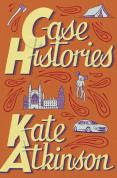 Trigger Thumb and White Finger are the central protagonists in the post-modern spaghetti western script I’m writing in which my main characters are loosely connected by the theme of repetitive stress injury and puzzle addiction.
Trigger Thumb and White Finger are the central protagonists in the post-modern spaghetti western script I’m writing in which my main characters are loosely connected by the theme of repetitive stress injury and puzzle addiction.One young, handsome and idealistic, the other older, wrinkled and a little sardonic, the unlikely duo are drawn together by their shared secret love for sudoku and their dislike of ball sports and being called mate by people they loathe. Initially reticent to approach each other because of the rigorously observed hierarchy prevalent in the milieu of the works canteen, circumstances throw them together one evening when they independently volunteer for an overtime shift that takes place during the third round group match for the World Cup.
As the night progresses, initial stilted talk of wives and girlfriends and reality TV shows soon gives way to a little light joint crossword solving as they start to test the common ground that lies between them. By the time the first orange streaks of sunlight appear in the sky, the camera pans back to reveal our two heroes snoring gently with a folded newspaper on the table between them. Accompanied by the sounds of the dawn chorus and the clink of bottles from the whirring electric milk float outside, the shot closes in to reveal half full mugs of cold tea and a completed ‘fiendish’ sudoku grid.
Personally, I think it’s got legs as a premise.
And it’s also part of my investigation into the question that’s bugging me at the moment: can a brain suffer from repetitive stress injury? Sure, I know that repeated physical actions (like typing or using a pneumatic drill) can lead to RSI and all of its unpleasant associated symptoms – pain, tingling, numbness, random loss of sensation. But can the same thing happen to a brain, what with it not really moving about much and all?
I ask this because I think my brain’s got RSI. Unlike my artfully created and not at all stereotyped protagonists, I make no secret of the fact that I like doing puzzles. Call me a sad geek if you like (no, please do if you feel the need – I really can’t hear you) but there’s something intrinsically satisfying about pitting my wits against an unknown combatant, especially when it comes in grid form. It started off innocently enough - as all addictions do - with word search puzzles when I was a child. From there, I graduated to number search and onto straight crosswords, code breakers, ‘skeletons’, quiz words, track words, and cryptic crosswords. For many years I thought that mind-bending logic puzzles represented my personal puzzle nirvana.
And then along came sudoku. Oh how I love thee. (Especially, it has to be said, the interactive online versions). If I’m feeling stressed, frazzled or in any way discombobulated, I can lose myself for hours playing game after game after game until my eyes throb. Something about narrowing down one’s world view until it’s just your brain, your eyes, a little 81 square grid and the numbers 1 to 9 soothes my restless soul and frees my mind.
Which is all well and good until you start dreaming about them. I close my eyes and the grid’s there, pristine and inviting me in with its perfect black and white symmetry. My mind’s even started inventing a new version with letters rather than numbers. I found this occupying my conscious brain today when my body was actually attending a rather grave and poker-faced work meeting. I’m pretty sure I got away with it though, my colleagues no doubt assuming that my frowns and grimaces were connected with what we were discussing. Nothing of the sort; I was tussling with how one might locate a collection of intersecting nine letter words without a tedious trudge through my rather battered dictionary.
Sudoku addiction? RSI of the brain? Or ground breaking research into the creation of new 81 letter puzzles? Hmmm, let me ponder that over a cup of tea and just a quick little peep at an online sudoku. Just the one. I promise I’ll be right back…




You have rendered me speechless, other than to say, it does seem to be a rather economical addiction, as addictions go.
ReplyDeleteIf my speech returns, I might return, however, I am brain dead today, so return is unlikely until it arises again, which will not happen until after a long nap.
An addiction for the credit crunch generation perhaps?? :-)
ReplyDeleteNapping is also a very fine pastime and an excellent way to raise the brain from the dead I find. Have a good snooze Fram :-)
Perhaps, but probably because it's fun, too.
ReplyDeleteNap accomplished, but only the center one-third has been restored so far, which leaves me somewhat in a state of confusion.
Do you think I pick on you because we sort of are on the opposite ends of the polar sleep poles? Be honest, now.
ReplyDeleteRestoration of the centre third of the brain is a good place to start... :-)
ReplyDeleteBut to answer your question...
I'm often plagued with what most would probably call insomnia. (It's nothing new - I've been like it since birth according to my poor old mother who had to put up with the wakeful infant me.)
A few months back, I was thinking a lot about sleep patterns and did a bit of research. To cut a long story short, people like me (and possibly you I suspect Fram?!) have what is known as a biphasic sleep pattern. Biphasic sleepers usually take their sleep in chunks of perhaps 3-5 hour 'naps' (day or night), instead of the more *normal* (by which I mean more usual) 7-9 straight hours taken at night. The latter, more typical, sleep pattern is called monophasic sleep.
I recognised myself as soon as I read the descriptions of biphasic sleeping. As an aside, the distance between naps can easily spread for me into very long insomnia-like periods if I've got something bugging me, for instance.
The only downsides of having a biphasic sleep pattern that I can see are, of course, in our modern world is that it is not always easily accommodated by the standard '9 to 5' working day (I've often been known to take a workplace lunch time / early afternoon nap in my car), and that others who don't sleep this way think the taking of 'naps' to be a slightly odd habit (rather than a personal design characteristic, if you know what I mean!).
I'd tried to work out the time difference and looked at the USA time zones on a map and found that Minnesota is in the 'central time zone' - you're 5-6 hours *behind* me here on GMT if I've got that right? (By the way, time differences are something else that fascinate me, one for another day perhaps?)
So no, I don't think you pick on me a bit - or only in a very good way because I really enjoy hearing from you! :-) But I'm sure there's a cracking good story to be written about two people with cranky sleeping patterns corresponding with each other over a 5-6 hour time difference :-)
It's 11.30am here and I'm just taking a break from my gardening day with a nice cup of coffee and a smoke. It's beautiful and sunny outside and I'm actually rather enjoying myself to my great surprise.
So on which note, I will wish you a good morning before I sit here for too long and look up and find it's dark :-)
Ooh, I signed on to say I that crosswords are more useful to a writer, but you seem to be having no problems in that direction. But 'bisphasic sleep patterns'! They seem to name a new psychic pattern every day. I'm like this - I wake at 5am and I daren't sit down around 4pm or I'll nod off (sometimes I do, now I'm retired ) I always thought it was connected with low blood sugar - the cue for afternoon tea - and cake- in England.
ReplyDeleteHee hee hee Sheila, you're quite right! :-)
ReplyDeleteMy good friend Liz was once married to a German. I think the highlight of her trips to visit her in-laws (in fact, possibly the highlight of her marriage from the sound of it...) was that everything stopped late afternoon for the taking of tea and cake. Thus when we've been on holiday together, she speaks fluent cake in any language.